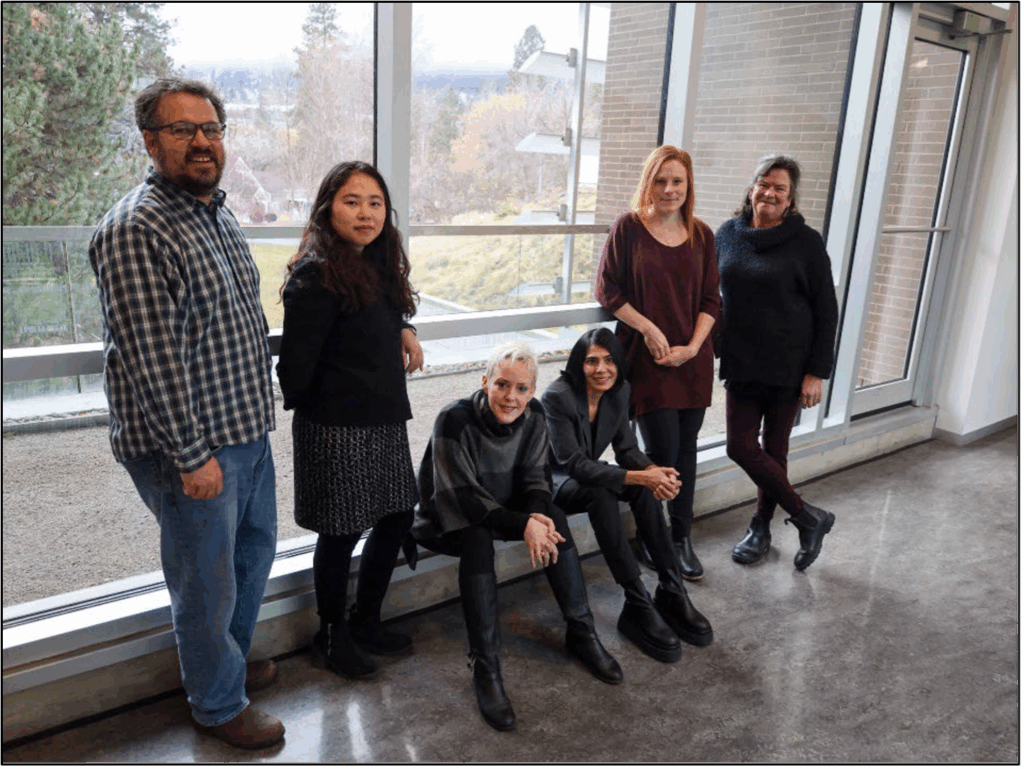By Dr. Amie McLean on behalf of the TRU Research Team (2024-2025 BCcampus Research Fellows)
Canadian post-secondary educators and institutions are navigating a moment in history defined by rising social polarization, xenophobia, and hatred. Our capacities to meet this moment rely significantly on our abilities to learn and unlearn from and with people who are different from ourselves. At the same time, meeting our decolonial responsibilities in both local and global contexts requires attending meaningfully to skills-based intercultural development for students, as was called for nearly a decade ago by the Truth and Reconciliation Commission of Canada (see TRC Calls to Action 24, 27, 28, 57, 63 iii, and 92 iii).
For several years, an interdisciplinary team of scholars at Thompson Rivers University have been studying students’ experiences of diversity, inclusion, and intercultural learning. This mixed-methods research project incorporates quantitative survey data from 3,257 students and open-ended qualitative survey responses from 389 students collected during the 2023-2024 academic year. In addition to considering the impact of relevant identity factors, the research team focused on identifying enablers of, barriers to, and impacts of intercultural learning for students with particular attention to various demographic factors, such as students’ discipline (faculty or school), student status (domestic, international, or domestic Indigenous), delivery modality (on campus or online), and self-disclosed identity factors (e.g., gender identity, sexual orientation, race, or ethnicity).
The research is supported by the BCcampus Research Fellows Program, which provides B.C. post-secondary educators and students with funding to conduct research on teaching and learning, as well as explore evidence-based teaching practices that focus on student success and intercultural learning.
BCcampus funding, as well as additional internal university grants, allowed us to hire multiple, talented research assistants. To date, we have been especially focused on coding and analysis of the large set of qualitative survey responses.

Together, the team has gained rich insights into the complex, intersectional power dynamics at play in students’ experiences of diversity, inclusion, and intercultural learning. We documented the impacts of intercultural learning on students’ academic, career, and personal journeys while simultaneously identifying factors that enable such learning. By closely attending to students’ accounts of the barriers they face to such opportunities, we are working to develop evidence-based interventions that address existing gaps locally while also identifying more generalizable insights. For example, initial quantitative analysis of variance (ANOVA) findings indicate that student experiences differ significantly depending upon their discipline and student status.
The qualitative data indicate that some of the most significant barriers to intercultural learning that students experience include a lack of intercultural learning opportunities, inadequacies relating to curriculum and pedagogy, harmful interpersonal and communicative power dynamics, and systemic discrimination. In contrast, co- and extra-curricular activities, intercultural curricula and pedagogical approaches, and opportunities for community-based learning and engagement were all identified as key enablers of inclusive and intercultural learning. Several themes were identified as both barriers and enablers such as institutional policies and practices and instructional capacity. These themes require further analysis to determine how demographic factors influence these perceptions.
Our team has been very actively disseminating its findings at conferences institutionally, provincially, nationally, and internationally. Moving forward, we are especially focused on knowledge mobilization locally and making a wider contribution to the field. Once we move through the final stages of data analysis, we will share the findings more broadly through reports and refereed manuscripts. The team is also working to engage locally with institutional leadership and individual faculties and schools to provide specific insights, findings, and actionable recommendations disaggregated by discipline. It is our sincere hope that we can continue to amplify the voices of student participants in service to empirically-based approaches to equity, diversity, and intercultural learning in Canadian post-secondary educational environments.
To learn more about our research, please attend the BCcampus webinar, In Their Own Words: Post-Secondary Students’ Perspectives on Diversity, Inclusion and Intercultural Learning on Monday, October 6, 2025, at 9:00 a.m.
Thompson Rivers University campuses are on the ancestral lands of the Tk’emlúps te Secwépemc (Kamloops campus) and the T’exelc (Williams Lake campus) within Secwepemcúle̓cw, the traditional and unceded territory of the Secwépemc. The region TRU serves also extends into the territories of the St’át’imc, Nlaka’pamux, Nuxalk, Tŝilhqot’in, Dakelh, and Syilx peoples.
